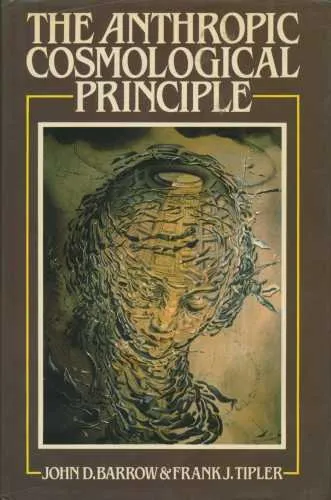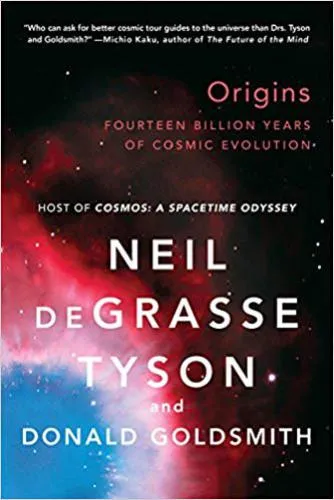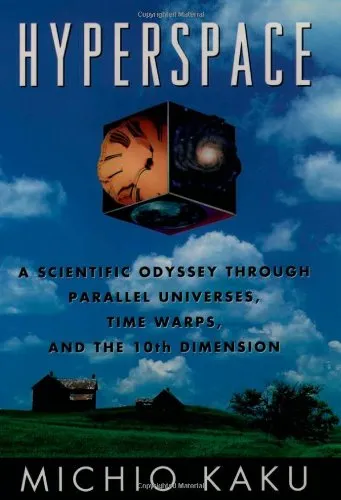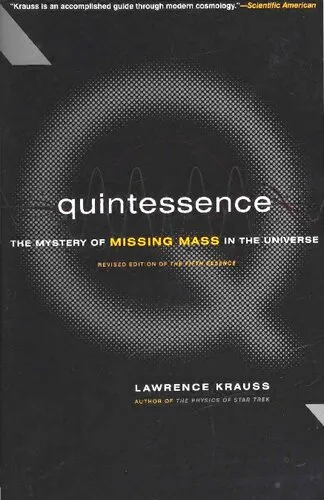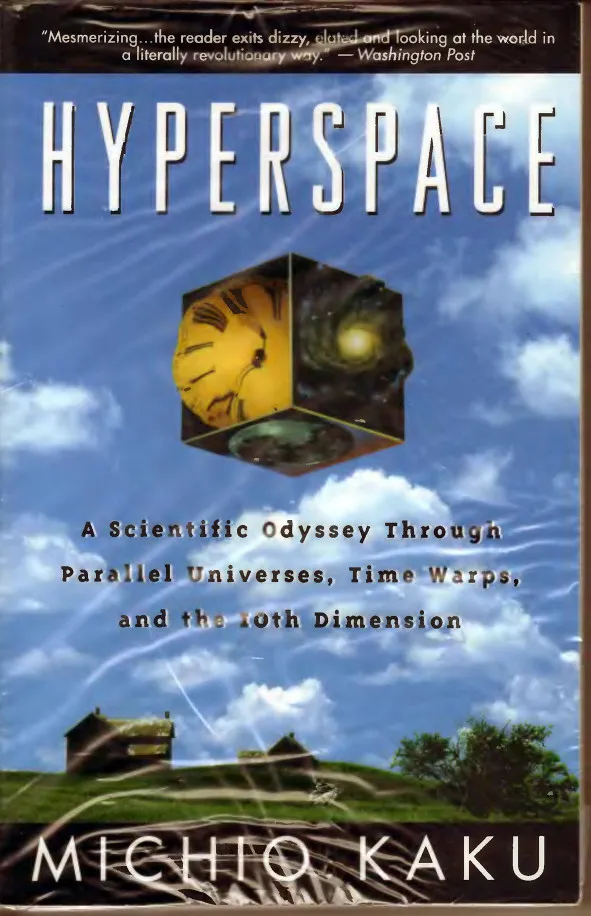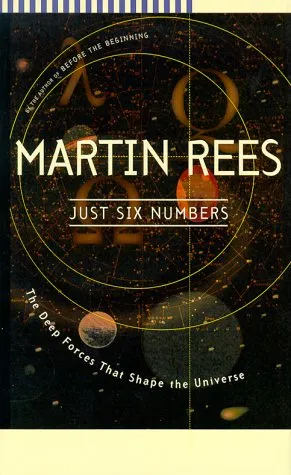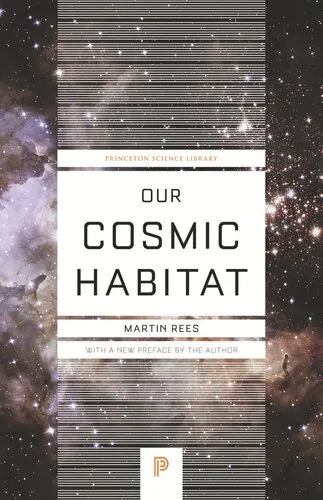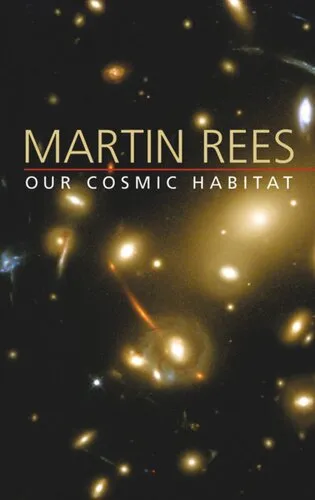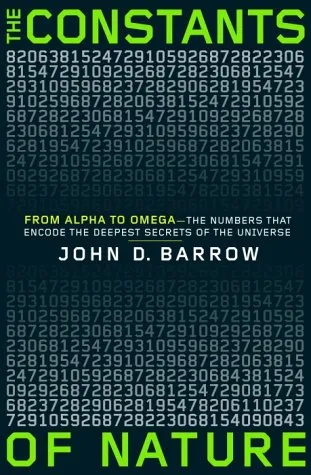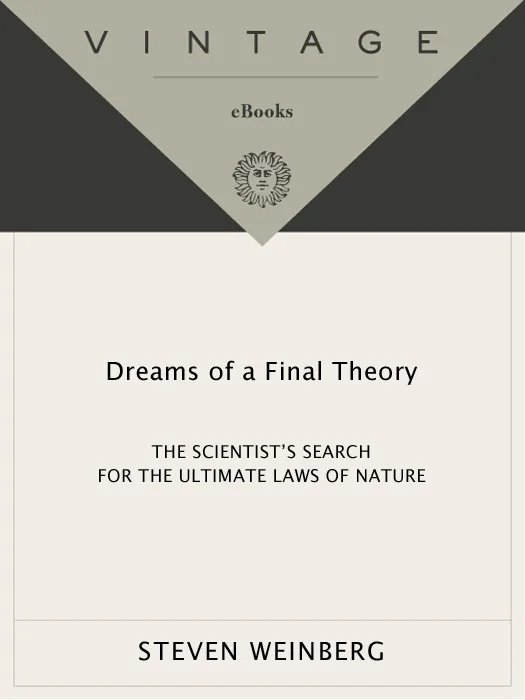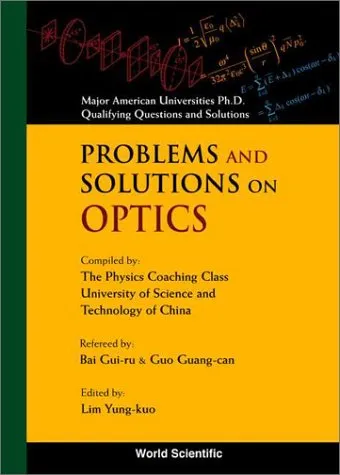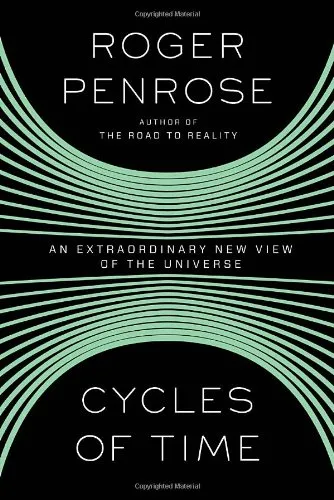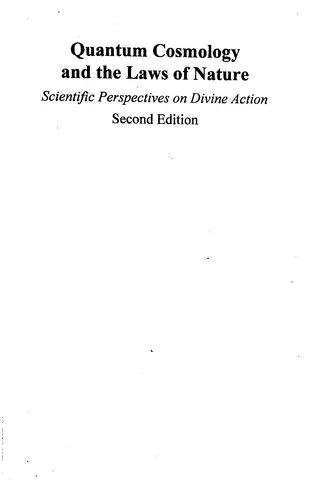The Anthropic Cosmological Principle
4.0
بر اساس نظر کاربران

شما میتونید سوالاتتون در باره کتاب رو از هوش مصنوعیش بعد از ورود بپرسید
هر دانلود یا پرسش از هوش مصنوعی 2 امتیاز لازم دارد، برای بدست آوردن امتیاز رایگان، به صفحه ی راهنمای امتیازات سر بزنید و یک سری کار ارزشمند انجام بدینکتاب های مرتبط:
مقدمهای بر کتاب "The Anthropic Cosmological Principle"
کتاب "The Anthropic Cosmological Principle" نوشتهی John D. Barrow، Frank J. Tipler و John A. Wheeler یکی از آثار کلاسیک در حوزهی کیهانشناسی نظری است که به بررسی اصول آنتروپیک در فلسفه و علم کیهانشناسی میپردازد. این کتاب با ترکیب نظریههای فیزیک مدرن، فلسفه و علم، دریچههای جدیدی برای درک ما از جهان و نقش انسان در آن میگشاید. در این اثر جامع، نویسندگان با ارائهی یک تحلیل عمیق از ارتباط بین قوانین جهان و وجود حیات هوشمند، به دنبال پاسخ به پرسشهای بنیادین در مورد سرشت جهان هستند.
خلاصهای از کتاب
کتاب "The Anthropic Cosmological Principle" به بررسی اصل آنتروپیک و جایگاه آن در علم کیهانشناسی میپردازد. این اصل بیان میکند که قوانین فیزیکی و ثوابت کیهانی به نحوی تنظیم شدهاند که امکان وجود حیات را فراهم کنند. نویسندگان از این مفهوم برای تحلیل مسائل کلان کیهانشناسی و همچنین کشف ارتباط بین هندسهی کیهان، تکامل جهان و وجود انسان استفاده میکنند.
یکی از محورهای اصلی کتاب، توضیح دو نسخهای کلیدی از اصول آنتروپیک است:
- نسخه ضعیف: جهان باید به صورتی باشد که وجود مشاهدهگران را امکانپذیر کند.
- نسخه قوی: جهان از همان ابتدا باید به گونهای طراحی شده باشد که حیات پیچیده و مشاهدهگرانی هوشمند را به وجود آورد.
در طول کتاب، نویسندگان به ترکیب موضوعاتی همچون ترمودینامیک، نظریه اطلاعات، تکامل زیستی و فلسفه اخلاق میپردازند تا نشان دهند که چگونه اصول آنتروپیک میتوانند چشماندازی جامعتر نسبت به علم ما ارائه دهند.
نکات کلیدی کتاب
- ارتباط بین قوانین بنیادین فیزیک و امکان وجود حیات هوشمند در جهان.
- تحلیل اثرات اصل آنتروپیک بر فلسفه علم و کیهانشناسی.
- تلاش برای نشان دادن این که چرا جهان به نحوی خاص طراحی شده است.
- استفاده از مفاهیم پیشرفته در ریاضیات و فیزیک برای تأیید مشاهدات کیهانی.
- پرداختن به پرسشهای عمیق دربارهی سرنوشت نهائی انسان و کیهان.
این نکات به خوانندگان کمک میکند دریابند که کتاب چگونه افقهای فکری جدیدی ارائه میدهد و دانش ما را در زمینههایی چون فلسفه علم و نظریههای کیهانشناسی گسترش میدهد.
جملات معروف از کتاب
- "The universe exists in such a way that it is possible to contemplate its laws and strive to understand its meaning."
- "The constants of nature appear fine-tuned not just for life as we know it, but for any conceivable form of conscious life."
- "The Anthropic Principle does not ask why the universe is, but why it is this way that permits our existence."
- "What we observe as the universe is contingent upon the conditions necessary for our existence as observers."
این جملات به خوبی عمق و فلسفهای که پشت این اثر قرار دارد را به نمایش میگذارند و نشاندهندهی پیچیدگی اندیشهی نویسندگان هستند.
چرا این کتاب اهمیت دارد؟
کتاب "The Anthropic Cosmological Principle" اثری جامع در ادبیات علمی و فلسفی است که تأثیرات بسیاری بر مباحث علمی و دیدگاههای فلسفی نسبت به جهان گذاشته است. این کتاب به ما کمک میکند درک عمیقتری از رابطهی بین انسان و کیهان پیدا کنیم و پرسشهای پیچیدهای دربارهی چرایی و چگونگی وجود جهان مطرح کنیم.
مطالعهی این کتاب نشان میدهد که چگونه علم میتواند به فلسفه نزدیک شود و سوالات وجودشناختی مهمی را مطرح کند که از مرزهای دانش بشری بسیار فراتر میرود. با ترکیب علم، فلسفه و انسانشناسی، نویسندگان این کتاب تلاش میکنند پیوندهایی میان این حوزهها برقرار کنند که به ندرت در آثار دیگر دیده میشود.
این اثر بهعنوان یک منبع کلیدی برای دانشمندان، فیلسوفان و هر کسی که به دنبال معنای عمیقتری از جهان است، شناخته میشود و همچنان بهعنوان یکی از آثار مهم در زمینه «فلسفه علم کیهانشناسی» مورد مراجعه قرار میگیرد.
Introduction to 'The Anthropic Cosmological Principle'
Written by John D. Barrow and Frank J. Tipler, with contributions from John A. Wheeler, The Anthropic Cosmological Principle is a groundbreaking work that dives deep into the intersection of cosmology, philosophy, and the implications of intelligent existence. The book, published in 1986, centers around what is known as the "Anthropic Principle," an idea that suggests that the universe must be compatible with the development of intelligent life, such as humans, that observe it. By connecting cosmology with the fundamental underpinnings of life, this book profoundly reshapes how we approach science and meaning in the universe.
With rigorous analysis and attention to historical, philosophical, and scientific detail, Barrow and Tipler delve into one of the most important questions ever asked: why is the universe the way it is, and what role does human consciousness play in understanding it? The book explores various formulations of the Anthropic Principle and relates them to discussions about the nature of the cosmos, the laws of physics, and humanity’s existence. The integration of cutting-edge science with profound philosophical thought makes it an essential read for those intrigued by our place in the universe.
Detailed Summary of the Book
The core of The Anthropic Cosmological Principle lies in its exploration of the Anthropic Principle from both scientific and philosophical perspectives. The authors introduce different versions of the principle, ranging from the Weak Anthropic Principle (WAP), which observes that the universe's basic conditions are necessary for the existence of life, to the Strong Anthropic Principle (SAP), which more ambitiously suggests that the universe must have properties that allow life to exist at some stage.
As the book progresses, the authors examine the historical development of thought about the universe and its fundamental laws. They analyze how early scientific pioneers and philosophers grappled with questions of existence and life's emergence. This historical perspective provides readers with an appreciation of how ideas about cosmology and the Anthropic Principle have matured throughout human history.
The second half of the book delves into modern scientific theories, including quantum mechanics and cosmology, to explore whether the Anthropic Principle provides a satisfactory framework for explaining the universe's intricacies. Topics such as the fine-tuning of physical constants, the nature of the multiverse, and the role of observation in quantum mechanics are scrutinized. The authors raise thought-provoking questions: Did the universe inevitably give rise to conscious beings, or is our existence a mere accident?
The book culminates in an exploration of the far-reaching implications of the Anthropic Principle. Drawing parallels between physics, biology, and even metaphysical ideas, Barrow and Tipler argue that comprehending the universe’s design might guide humanity to a deeper understanding of its purpose and cosmic destiny.
Key Takeaways
- The Weak and Strong Anthropic Principles provide a framework for understanding why the universe appears fine-tuned for life.
- Modern cosmology suggests the possibility of a multiverse, where countless universes could have different physical laws.
- The book highlights the intricate connection between observation, consciousness, and the functioning of the universe.
- Historical developments in human thought reveal humanity’s enduring quest to understand life’s purpose.
- The Anthropic Principle challenges traditional notions of causality, randomness, and design in the cosmos.
Famous Quotes from the Book
"The possibility that some event in the remote future might exert an influence on what events occur in the universe today is an inescapable consequence of the Strong Anthropic Principle."
"The universe is the way it is, at least in part, because if it were different no beings could exist to observe it."
"The ultimate significance of intelligence and life in the cosmos lies in their ability to bring the universe’s structure to consciousness."
Why This Book Matters
The significance of The Anthropic Cosmological Principle lies in its ability to bridge the gap between science and philosophy in highly creative ways. It does not merely present facts about the universe; it challenges readers to think deeply about how and why the universe exists in its current form. The careful balance between empirical evidence and speculative reasoning inspires readers to critically assess humanity's role in the cosmos.
This book has influenced numerous scientific and philosophical debates, particularly in fields related to cosmology, the philosophy of science, and the origin of life. It has led to ongoing discussions about the fine-tuning problem, the existence of a multiverse, and the relationship between observation and reality. Its legacy lies in its capacity to reveal the profound interconnectedness of scientific inquiry and human existence.
دانلود رایگان مستقیم
شما میتونید سوالاتتون در باره کتاب رو از هوش مصنوعیش بعد از ورود بپرسید
دسترسی به کتابها از طریق پلتفرمهای قانونی و کتابخانههای عمومی نه تنها از حقوق نویسندگان و ناشران حمایت میکند، بلکه به پایداری فرهنگ کتابخوانی نیز کمک میرساند. پیش از دانلود، لحظهای به بررسی این گزینهها فکر کنید.
این کتاب رو در پلتفرم های دیگه ببینید
WorldCat به شما کمک میکنه تا کتاب ها رو در کتابخانه های سراسر دنیا پیدا کنید
امتیازها، نظرات تخصصی و صحبت ها درباره کتاب را در Goodreads ببینید
کتابهای کمیاب یا دست دوم را در AbeBooks پیدا کنید و بخرید
1666
بازدید4.0
امتیاز0
نظر98%
رضایتنظرات:
4.0
بر اساس 0 نظر کاربران
Questions & Answers
Ask questions about this book or help others by answering
No questions yet. Be the first to ask!
